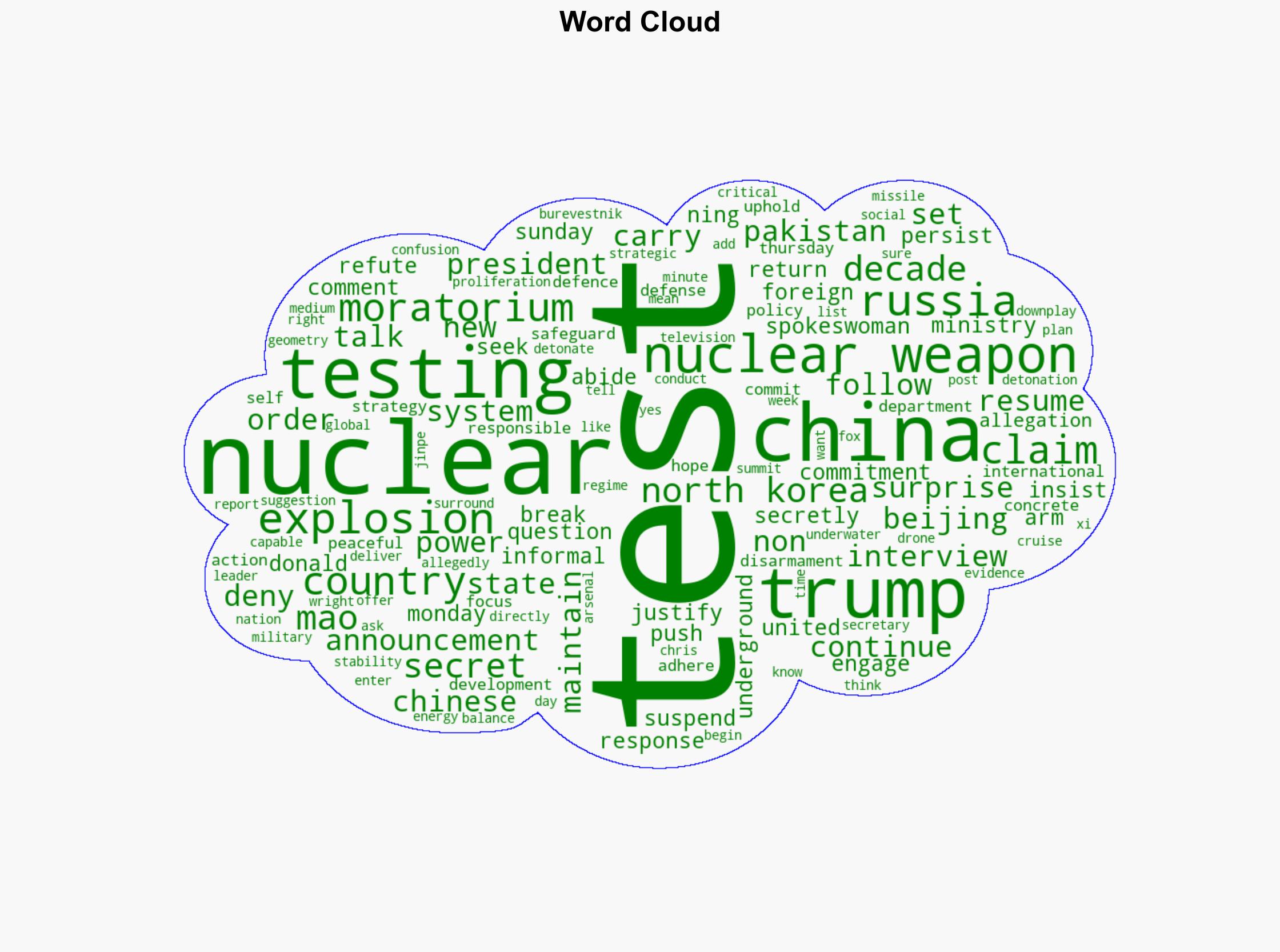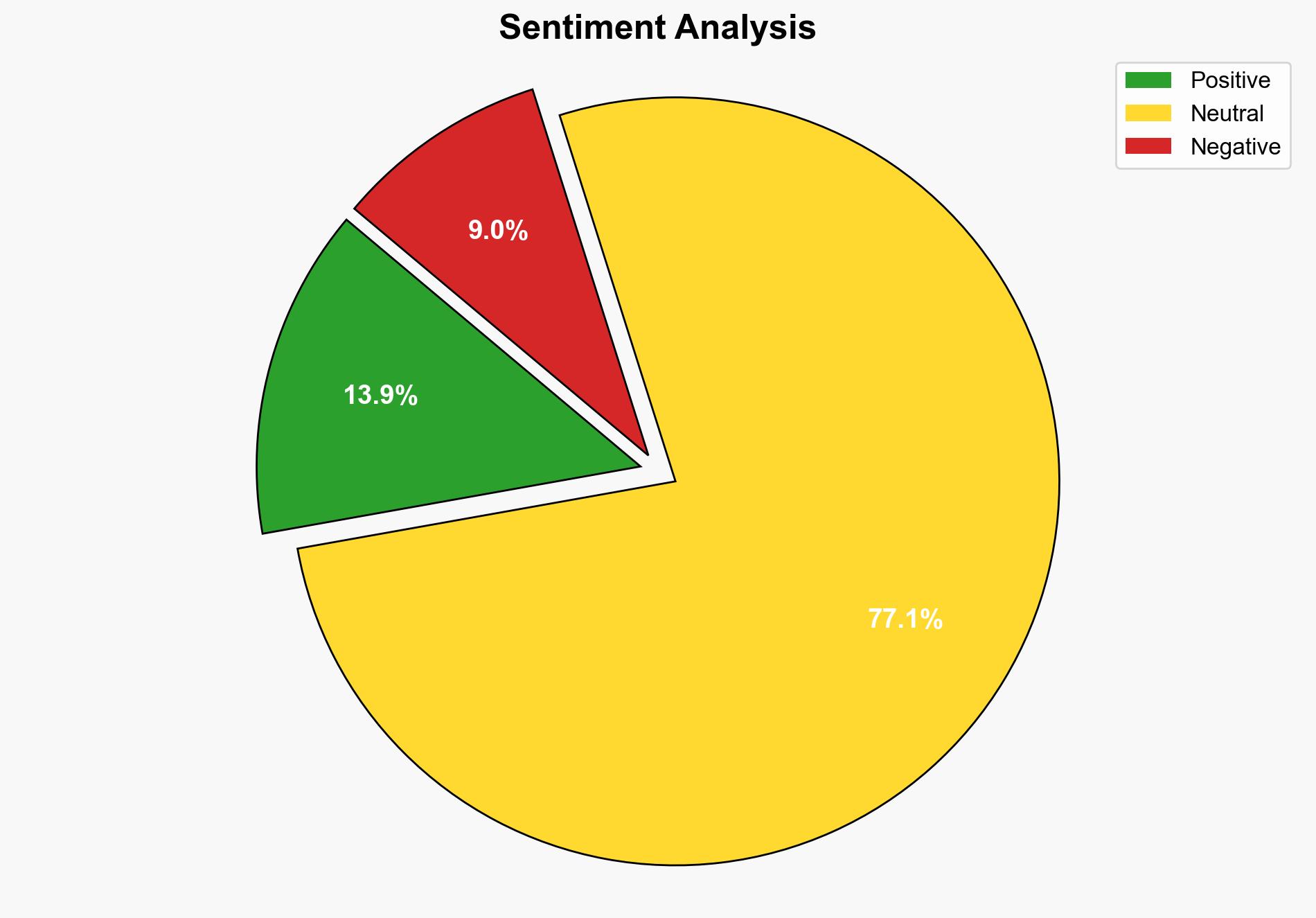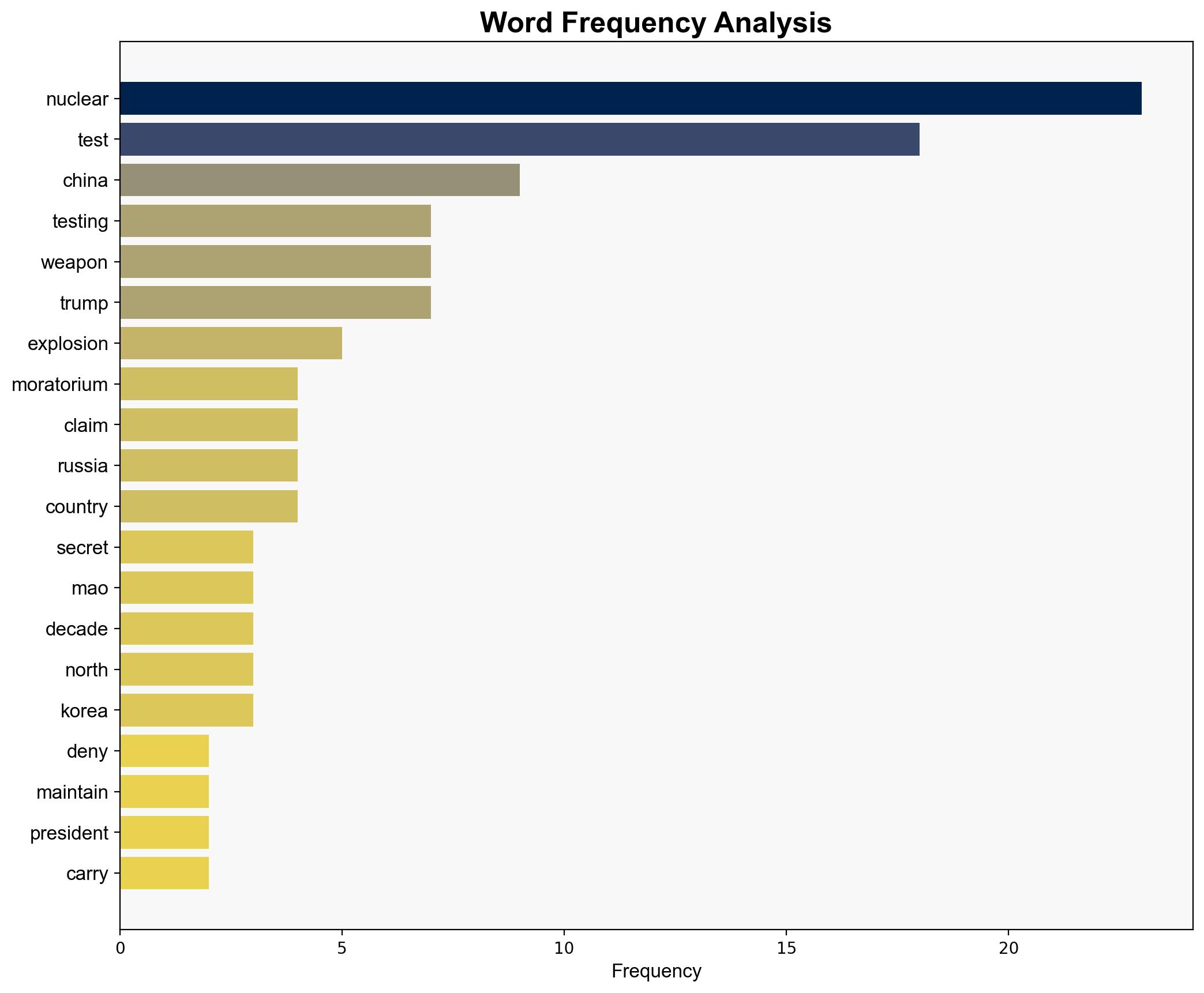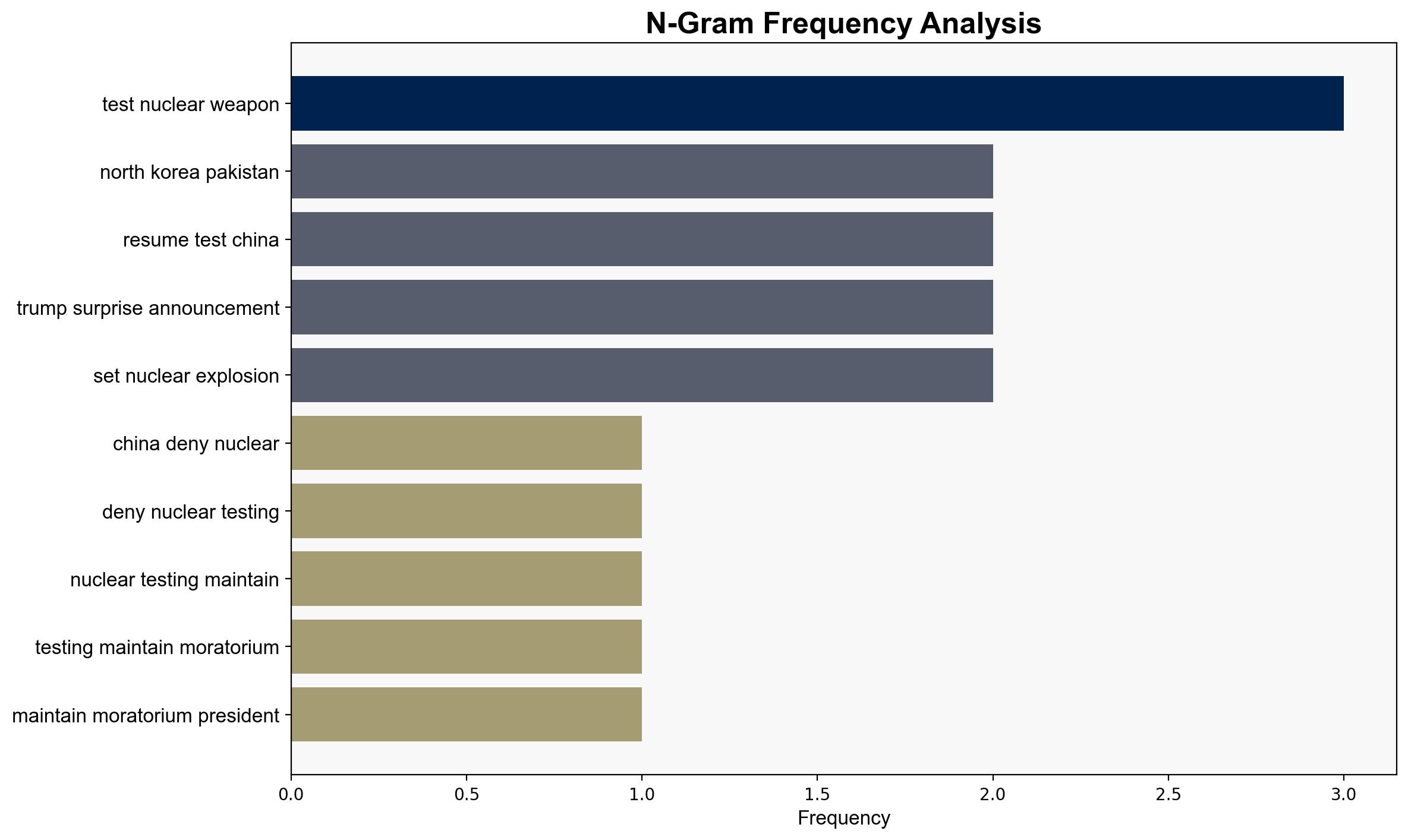China denies nuclear testing calls on US to maintain moratorium – Al Jazeera English
Published on: 2025-11-03
Intelligence Report: China denies nuclear testing calls on US to maintain moratorium – Al Jazeera English
1. BLUF (Bottom Line Up Front)
The most supported hypothesis is that China is adhering to its commitment to the nuclear testing moratorium, and the claims of secret testing are unfounded. This assessment is based on the lack of concrete evidence supporting the allegations and China’s consistent diplomatic stance. Confidence level: Moderate. Recommended action: The US should engage in diplomatic dialogue with China to reinforce mutual commitments to nuclear non-proliferation and avoid unnecessary escalation.
2. Competing Hypotheses
1. **Hypothesis A**: China is adhering to the nuclear testing moratorium and the allegations of secret nuclear tests are unfounded.
– **Supporting Evidence**: China’s official denial, consistent diplomatic statements, and lack of evidence from the US.
– **Contradictory Evidence**: Allegations from the US President suggesting secret tests.
2. **Hypothesis B**: China is conducting secret nuclear tests, violating the moratorium.
– **Supporting Evidence**: Claims made by the US President, potential geopolitical motivations for China to enhance its nuclear capabilities.
– **Contradictory Evidence**: Absence of concrete evidence or international corroboration, China’s public commitment to non-proliferation.
3. Key Assumptions and Red Flags
– **Assumptions**: Hypothesis A assumes China’s public statements are truthful and that there is no undisclosed evidence. Hypothesis B assumes the US has credible intelligence that is not publicly disclosed.
– **Red Flags**: Lack of evidence supporting secret testing claims, potential political motivations behind the allegations, and the timing of the claims coinciding with US domestic and international policy shifts.
4. Implications and Strategic Risks
– **Geopolitical Risks**: Accusations of secret testing could escalate tensions between the US and China, potentially leading to a renewed arms race.
– **Economic Risks**: Increased tensions may impact global markets and trade relations.
– **Psychological Risks**: Public perception of nuclear threat could increase, affecting global stability and security.
5. Recommendations and Outlook
- Engage in diplomatic talks with China to reaffirm mutual commitments to nuclear non-proliferation.
- Encourage transparency and confidence-building measures to verify adherence to the moratorium.
- Scenario Projections:
- Best Case: Strengthened international cooperation on nuclear non-proliferation.
- Worst Case: Escalation of tensions leading to a new arms race.
- Most Likely: Continued diplomatic posturing with no significant change in current status.
6. Key Individuals and Entities
– Donald Trump
– Mao Ning
– Xi Jinping
7. Thematic Tags
national security threats, nuclear non-proliferation, geopolitical tensions, US-China relations




